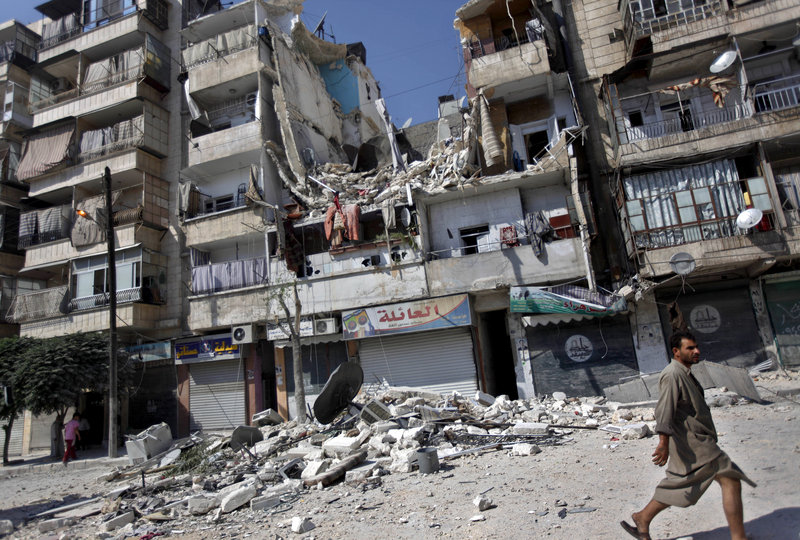BEIRUT — Its forces stretched thin on multiple fronts, President Bashar Assad’s regime has significantly increased its use of air power against Syrian rebels in recent weeks, causing a spike in civilian casualties.
The shift is providing useful clues about the capability of the Syrian air force as Western powers consider the option of enforcing a no-fly zone over the northern part of the country, where rebels control large swaths of territory along the Turkish border.
If a no-fly zone is enforced, Western aircraft will likely go head-to-head with the Syrian air force as well as try to neutralize, at least partially, its air defense system.
“It is certainly a sign of increased concern on the part of the regime,” said senior political scientist Christopher S. Chivvis of the Rand Corporation. “The growing use of air power, particularly fixed-wing aircraft, raises the possibility of foreign intervention.”
U.S. Defense Secretary Leon Panetta said Aug. 14 that plans to set up a no-fly zone over parts of Syria is “not on the front burner,” despite persistent calls from rebel forces there that they need the added protection from escalating regime airstrikes in the civil war.
Secretary of State Hillary Rodham Clinton has said that the U.S. and Turkey are discussing a range of steps, including a no-fly zone over some parts of Syria. Russia, Assad’s main foreign backer, opposes a no-fly zone.
There are no estimates on how many civilians have been killed in airstrikes in the four-week period in which stepped up attacks have been detected, but Syrian activists speak of hundreds, maybe thousands, across the country.
Helpless civilians run for cover when they hear the distant buzz of aircraft. Terrified and screaming, they head to the nearest basement or ground floor. “May God exact retribution on him!” they shout against Assad or the pilot involved. “May God cripple him!” and “May he rot in hell!” are other frequently used curses.
Syria’s air force has an unimpressive record – it lost 85 planes in a battle with Israel in 1982 – but without any effective anti-aircraft weapons in the hands of the rebels, the relatively antiquated fleet of Soviet-era warplanes is unchallenged.
“We used to think mortars are bad,” activist El-Saeed Mohammed said by Skype from a Damascus suburb. “Now, we think they are almost sweet when compared to what warplanes do to us. There is no kidding with planes.”
Send questions/comments to the editors.



Success. Please wait for the page to reload. If the page does not reload within 5 seconds, please refresh the page.
Enter your email and password to access comments.
Hi, to comment on stories you must . This profile is in addition to your subscription and website login.
Already have a commenting profile? .
Invalid username/password.
Please check your email to confirm and complete your registration.
Only subscribers are eligible to post comments. Please subscribe or login first for digital access. Here’s why.
Use the form below to reset your password. When you've submitted your account email, we will send an email with a reset code.